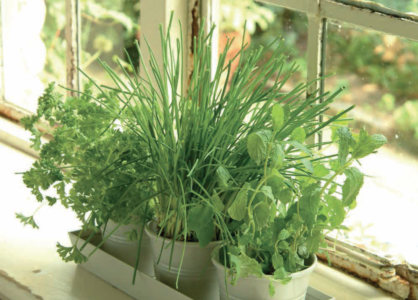 Neville Stein summarises an extensive research report produced in 2013 to identify opportunities for Irish plant producers in the UK.
Neville Stein summarises an extensive research report produced in 2013 to identify opportunities for Irish plant producers in the UK.
THE UK GARDEN MARKET
Garden plants are still predominantly bought from garden centres of which there are estimated to be somewhere between 2,400 to 2,500 specialist garden retail outlets. Of these, many are still single site privately owned establishments. Despite some recent merger and acquisition activity in the garden retail sector it still remains a very fragmented market, characterized by individual owner operated centres.
The predominate DIY retailers of garden plants in the UK are B & Q with 357 stores and Homebase with 342 stores. Recently, 3 non-DIY multiple retailers have entered the UK garden retail market. Next at Home currently operate 3 stores but have ambitions to establish 20 stores throughout the UK, and the supermarket chain Waitrose is selling gardening products from permanent sheds built in walkways outside 41 of its 290 supermarkets. The supermarket chain Morrisons has opened 102 small outdoor garden centres. Another emergent threat posed by multiple retailers is the effectiveness of their online offers, particularly in non-gardening products, providing significant competition to the independent garden centre market.
UK PLANT SALES 2013
The market for garden plants this year has been very dynamic and consequently much has been reported on both Hort Week and Garden Forum’s websites. Information on these sites gives an interesting picture. In March, when the gardening year starts garden centres on average were -32% down on the previous year, + 8% in April, +15% in May, +19% in June, +15% in July, +7.7% in August.
Garden centres sales were up 1% in September, and this performance appears to be better than the UK high street. Figures released in BDO’s monthly High Street Sales Tracker show overall like-for-like high street sales in September were up 0.6%.
“Research from The HTA states that UK consumers spend approximately £5 billion annually on plants and garden products, of this approximately £1.4 billion is spent annually on garden plants”
CURRENT TRENDS
Due to the irregular weather patterns, many garden retailers have sought to ‘weatherproof’ their business by reducing the reliance on the plant category. Consequently, many garden retailers have improved their catering offer, added new product categories (ambient food, clothing etc) and established in-store concessions. Likewise, many garden retailers are seeking new ways to grow sales outside the footprint of their store by establishing an online presence and offering new services to their customers such as garden maintenance etc.
The plant category at many garden centres is retaining or increasing slightly in annual total sales value but the category as a percentage of total garden centre sales is declining as many more garden retailers are seeing an overall increase in sales coming from new categories introduced.
The HTA, which provides excellent market intelligence has suggested that pensioners, in particular, remain relatively insulated from the impacts of an economic downturn, and one can rightly assume that when a sustained economic recovery occurs they will still remain an important customer segment for garden centres.
KEY IMPLICATIONS FOR GARDEN RETAILERS IN THE FUTURE● Younger consumers still do not appear to be visiting garden centres – what then can garden centres do to attract this potentially large group without alienating the traditional core customer base? |
CONSIDERATIONS FOR IRISH RETAILERS
Many UK garden centre operators have realised that customers want to be entertained and have grown sales through events – could this be an opportunity in Ireland?
● If the population is ageing in Ireland then garden centre operators would need to consider how to replace older customers with younger customer groups;
● As yet there does not appear to be a major E-tailer offering plants in ROI. This, therefore, presents an opportunity for garden centre operators;
● The growing interest in supermarket chains such as Aldi, Lidl and Tesco offering spot plant promotions also represents a competitive threat for independent garden centre operators who should promote their expertise and knowledge as a point of difference from the mass market retailers;
● Consumers will use technology to price check big-ticket items in garden centres. The smart retailers in the UK are making it hard for consumers to price check by removing manufactures labels, and replacing with their own bespoke labels and;
● Despite tough economic conditions those retailers in the UK which have been proactive by increasing their marketing spend have managed to grow sales.
Therefore perhaps the same may apply to ROI retailers – improve the effectiveness of the marketing function and sales should increase.
PLANT CATEGORIES IN DECLINE
All those surveyed clearly report that annual sales of ornamental trees and conifers are static or in decline. This is no surprise with ornamental trees; gardens are getting smaller and during the economic downturn ‘big ticket’ items have seen a drop in sales. The ericaceous category, notably Rhodendrons and Azaleas, appear to be experiencing a decline. This could be due to the poor weather in 2012 and 2013 at the key selling period for this category, or because of a lack of innovation by those nurseries supplying this category into the market. In addition to the above categories, many retailers are also reporting that sales of hardy exotic shrubs such as Phormiums and Cordylines have, in the words of one significant plant retailer, ‘fallen through the floor’. Likewise, grasses and bamboos seem to be experiencing a decline in sales.
PLANT CATEGORIES EXPERIENCING GROWTH
Of those retailers surveyed, the best performing plant categories appear to be the seasonal plant category (typically bedding plants and basket /tub plants). Within this category, the product lines that are experiencing strong sales (and modest growth) are:
● 6 pack bedding
● 9cm and 13cm hanging basket/tub plants
● Pot bedding
● Herbs
In the hardy plant category, growth is still being achieved with roses, particularly the celebration/occasion named roses. Likewise, there is still good growth happening in the herbaceous perennial category with the best product line in this category being Heucheras.
KEY FACTORS IN MAXIMISING UK OPPORTUNITIES
|
THE OPPORTUNITIES
Clearly, the opportunities are in the seasonal plant category:
● Repackaging certain hardy plants as seasonal and disposable;
● Premium herbaceous perennials;
● New plants within the shrub category; and
● New celebration type roses.
In essence, there is still a huge opportunity to sell very fresh looking impulse plants – colour sells! Point of sale and promotional activity are key in capitalising on new opportunities.
“The most significant limiting factor restricting the ability of ROI nurseries to capitalise on the UK market is the cost and speed of transport to the UK”
LIMITING FACTORS
The most significant limiting factor restricting the ability of ROI nurseries to capitalise on the UK market is the cost and speed of transport to the UK. ROI nurseries have various options regarding transporting plants to the UK garden centre market and they are:-
A. Use own transport. Whilst this may give a producer ultimate control over the whole despatch and delivery process, operating a fleet of vehicles can be very expensive. After all, vehicles are only making money for a company when their wheels are turning. Several UK nurseries, notably John Woods and Bransford Webbs, have outsourced their entire delivery functions.
B. Use a general haulier to deliver direct or to a hub. There are many general hauliers making the trip across the water but it is wise to use one that has experience of handling live, perishable products; or
C. Use own transport to deliver to a hub in the UK – this could be of interest to those nurseries that have their own transport but need to make small multiple drops to UK customers. ✽
KEY TRANSPORT CONSIDERATIONS FOR IRISH GROWERS
|
| The full text of this report is available from Bord Bia upon application. www.bordbia.ie |
|








